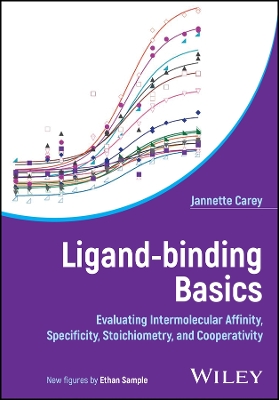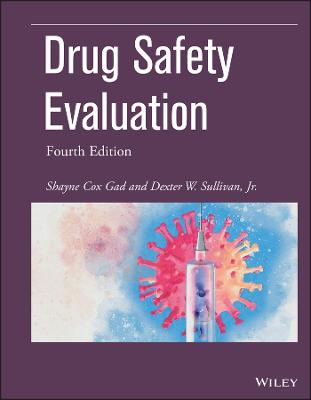Dynamics and Kinetics in Structural Biology
 -15%
portes grátis
-15%
portes grátis
Dynamics and Kinetics in Structural Biology
Unravelling Function Through Time-Resolved Structural Analysis
Moffat, Keith; Lattman, Eaton E.
John Wiley & Sons Inc
12/2023
288
Dura
Inglês
9781119696285
15 a 20 dias
Descrição não disponível.
List of Figures xii
Acknowledgments xiv
Acronyms/Abbreviations xvi
Units xix
1 Introduction: Principles of Kinetics and Dynamics 1
1.1 Structure, Function, and Mechanism 1
1.2 Activity in the Crystal 3
1.3 Other Structure-informing Techniques 7
1.4 Dynamics, Kinetics, Movies, Pathways, and Functional Trajectories 8
1.5 The Time-resolved Experiment: An Overview 12
2 Physical Chemistry of Reactions 19
2.1 Introduction 19
2.2 Thermodynamics: States and Equilibria 19
2.3 Kinetics, Rates, and Rate Coefficients 25
2.4 Enzyme Kinetics 28
2.5 Transition State Theory and Energy Landscapes 34
2.6 Trapping of Intermediates 38
3 The Experiment 43
3.1 Introduction 43
3.2 Signal and Noise 43
3.3 Reaction Initiation 48
4 The Sample 70
4.1 Crystal and Solution Samples 70
4.2 Introduction of the Sample to the X-ray Beam: Injection and Fixed Targets 72
4.3 Radiation Damage 76
4.4 Optogenetics and Photopharmacology 82
5 Time-resolved Crystallography, Solution Scattering, and Molecular Dynamics 92
5.1 Time-resolved Crystallography 92
5.2 Time-resolved X-ray Solution Scattering 104
5.3 Molecular Dynamics Simulations 116
6 X-ray Sources, Detectors, and Beamlines 126
6.1 Introduction 126
6.2 Sources of Synchrotron Radiation 127
6.3 X-ray Free Electron Lasers 136
6.4 Detectors 141
6.5 Beamlines and Experimental Stations 143
7 Data Analysis and Interpretation 150
7.1 Introduction 150
7.2 General Constraints on Analysis and Interpretation 152
7.3 Difference Electron Density Maps 154
7.4 Singular Value Decomposition (SVD) 160
7.5 Features Commonly Found in DED Maps 167
7.6 Refinement of Intermediate Structures 168
7.7 Example: The Photosynthetic Reaction Center 169
7.8 Making a Molecular Movie 172
7.9 Does the Mechanism in the Crystal Represent the Mechanism in Solution? 173
8 Other Structural Biology Techniques 178
8.1 Introduction 178
8.2 Single-Particle Cryo-Electron Microscopy 178
8.3 Energy Landscape Analysis 181
8.4 X-ray Spectroscopy 193
8.5 Nuclear Magnetic Resonance: Joseph Sachleben (University of Chicago) 202
8.6 Hydrogen-Deuterium Exchange 213
9 Looking Forward 222
9.1 Overview: Unraveling Function and Mechanism 222
9.2 Single Particle Imaging, Energy Landscape Analysis, and Functional Trajectories 223
9.3 Artificial Intelligence and Machine Learning 223
9.4 Experimental Approaches 227
9.5 Evolutionary Relevance of Trajectories 232
References 233
Appendix A Review of Crystallography 235
Index 246
Acknowledgments xiv
Acronyms/Abbreviations xvi
Units xix
1 Introduction: Principles of Kinetics and Dynamics 1
1.1 Structure, Function, and Mechanism 1
1.2 Activity in the Crystal 3
1.3 Other Structure-informing Techniques 7
1.4 Dynamics, Kinetics, Movies, Pathways, and Functional Trajectories 8
1.5 The Time-resolved Experiment: An Overview 12
2 Physical Chemistry of Reactions 19
2.1 Introduction 19
2.2 Thermodynamics: States and Equilibria 19
2.3 Kinetics, Rates, and Rate Coefficients 25
2.4 Enzyme Kinetics 28
2.5 Transition State Theory and Energy Landscapes 34
2.6 Trapping of Intermediates 38
3 The Experiment 43
3.1 Introduction 43
3.2 Signal and Noise 43
3.3 Reaction Initiation 48
4 The Sample 70
4.1 Crystal and Solution Samples 70
4.2 Introduction of the Sample to the X-ray Beam: Injection and Fixed Targets 72
4.3 Radiation Damage 76
4.4 Optogenetics and Photopharmacology 82
5 Time-resolved Crystallography, Solution Scattering, and Molecular Dynamics 92
5.1 Time-resolved Crystallography 92
5.2 Time-resolved X-ray Solution Scattering 104
5.3 Molecular Dynamics Simulations 116
6 X-ray Sources, Detectors, and Beamlines 126
6.1 Introduction 126
6.2 Sources of Synchrotron Radiation 127
6.3 X-ray Free Electron Lasers 136
6.4 Detectors 141
6.5 Beamlines and Experimental Stations 143
7 Data Analysis and Interpretation 150
7.1 Introduction 150
7.2 General Constraints on Analysis and Interpretation 152
7.3 Difference Electron Density Maps 154
7.4 Singular Value Decomposition (SVD) 160
7.5 Features Commonly Found in DED Maps 167
7.6 Refinement of Intermediate Structures 168
7.7 Example: The Photosynthetic Reaction Center 169
7.8 Making a Molecular Movie 172
7.9 Does the Mechanism in the Crystal Represent the Mechanism in Solution? 173
8 Other Structural Biology Techniques 178
8.1 Introduction 178
8.2 Single-Particle Cryo-Electron Microscopy 178
8.3 Energy Landscape Analysis 181
8.4 X-ray Spectroscopy 193
8.5 Nuclear Magnetic Resonance: Joseph Sachleben (University of Chicago) 202
8.6 Hydrogen-Deuterium Exchange 213
9 Looking Forward 222
9.1 Overview: Unraveling Function and Mechanism 222
9.2 Single Particle Imaging, Energy Landscape Analysis, and Functional Trajectories 223
9.3 Artificial Intelligence and Machine Learning 223
9.4 Experimental Approaches 227
9.5 Evolutionary Relevance of Trajectories 232
References 233
Appendix A Review of Crystallography 235
Index 246
Este título pertence ao(s) assunto(s) indicados(s). Para ver outros títulos clique no assunto desejado.
Biochemistry; biophysics; X-ray crystallography; time-resolved crystallography; synchrotron X-ray sources; protein crystallography; solution scattering; experimental biology; ultrafast optical studies; X-ray free electron laser sources; structural dynamics; mechanism and function
List of Figures xii
Acknowledgments xiv
Acronyms/Abbreviations xvi
Units xix
1 Introduction: Principles of Kinetics and Dynamics 1
1.1 Structure, Function, and Mechanism 1
1.2 Activity in the Crystal 3
1.3 Other Structure-informing Techniques 7
1.4 Dynamics, Kinetics, Movies, Pathways, and Functional Trajectories 8
1.5 The Time-resolved Experiment: An Overview 12
2 Physical Chemistry of Reactions 19
2.1 Introduction 19
2.2 Thermodynamics: States and Equilibria 19
2.3 Kinetics, Rates, and Rate Coefficients 25
2.4 Enzyme Kinetics 28
2.5 Transition State Theory and Energy Landscapes 34
2.6 Trapping of Intermediates 38
3 The Experiment 43
3.1 Introduction 43
3.2 Signal and Noise 43
3.3 Reaction Initiation 48
4 The Sample 70
4.1 Crystal and Solution Samples 70
4.2 Introduction of the Sample to the X-ray Beam: Injection and Fixed Targets 72
4.3 Radiation Damage 76
4.4 Optogenetics and Photopharmacology 82
5 Time-resolved Crystallography, Solution Scattering, and Molecular Dynamics 92
5.1 Time-resolved Crystallography 92
5.2 Time-resolved X-ray Solution Scattering 104
5.3 Molecular Dynamics Simulations 116
6 X-ray Sources, Detectors, and Beamlines 126
6.1 Introduction 126
6.2 Sources of Synchrotron Radiation 127
6.3 X-ray Free Electron Lasers 136
6.4 Detectors 141
6.5 Beamlines and Experimental Stations 143
7 Data Analysis and Interpretation 150
7.1 Introduction 150
7.2 General Constraints on Analysis and Interpretation 152
7.3 Difference Electron Density Maps 154
7.4 Singular Value Decomposition (SVD) 160
7.5 Features Commonly Found in DED Maps 167
7.6 Refinement of Intermediate Structures 168
7.7 Example: The Photosynthetic Reaction Center 169
7.8 Making a Molecular Movie 172
7.9 Does the Mechanism in the Crystal Represent the Mechanism in Solution? 173
8 Other Structural Biology Techniques 178
8.1 Introduction 178
8.2 Single-Particle Cryo-Electron Microscopy 178
8.3 Energy Landscape Analysis 181
8.4 X-ray Spectroscopy 193
8.5 Nuclear Magnetic Resonance: Joseph Sachleben (University of Chicago) 202
8.6 Hydrogen-Deuterium Exchange 213
9 Looking Forward 222
9.1 Overview: Unraveling Function and Mechanism 222
9.2 Single Particle Imaging, Energy Landscape Analysis, and Functional Trajectories 223
9.3 Artificial Intelligence and Machine Learning 223
9.4 Experimental Approaches 227
9.5 Evolutionary Relevance of Trajectories 232
References 233
Appendix A Review of Crystallography 235
Index 246
Acknowledgments xiv
Acronyms/Abbreviations xvi
Units xix
1 Introduction: Principles of Kinetics and Dynamics 1
1.1 Structure, Function, and Mechanism 1
1.2 Activity in the Crystal 3
1.3 Other Structure-informing Techniques 7
1.4 Dynamics, Kinetics, Movies, Pathways, and Functional Trajectories 8
1.5 The Time-resolved Experiment: An Overview 12
2 Physical Chemistry of Reactions 19
2.1 Introduction 19
2.2 Thermodynamics: States and Equilibria 19
2.3 Kinetics, Rates, and Rate Coefficients 25
2.4 Enzyme Kinetics 28
2.5 Transition State Theory and Energy Landscapes 34
2.6 Trapping of Intermediates 38
3 The Experiment 43
3.1 Introduction 43
3.2 Signal and Noise 43
3.3 Reaction Initiation 48
4 The Sample 70
4.1 Crystal and Solution Samples 70
4.2 Introduction of the Sample to the X-ray Beam: Injection and Fixed Targets 72
4.3 Radiation Damage 76
4.4 Optogenetics and Photopharmacology 82
5 Time-resolved Crystallography, Solution Scattering, and Molecular Dynamics 92
5.1 Time-resolved Crystallography 92
5.2 Time-resolved X-ray Solution Scattering 104
5.3 Molecular Dynamics Simulations 116
6 X-ray Sources, Detectors, and Beamlines 126
6.1 Introduction 126
6.2 Sources of Synchrotron Radiation 127
6.3 X-ray Free Electron Lasers 136
6.4 Detectors 141
6.5 Beamlines and Experimental Stations 143
7 Data Analysis and Interpretation 150
7.1 Introduction 150
7.2 General Constraints on Analysis and Interpretation 152
7.3 Difference Electron Density Maps 154
7.4 Singular Value Decomposition (SVD) 160
7.5 Features Commonly Found in DED Maps 167
7.6 Refinement of Intermediate Structures 168
7.7 Example: The Photosynthetic Reaction Center 169
7.8 Making a Molecular Movie 172
7.9 Does the Mechanism in the Crystal Represent the Mechanism in Solution? 173
8 Other Structural Biology Techniques 178
8.1 Introduction 178
8.2 Single-Particle Cryo-Electron Microscopy 178
8.3 Energy Landscape Analysis 181
8.4 X-ray Spectroscopy 193
8.5 Nuclear Magnetic Resonance: Joseph Sachleben (University of Chicago) 202
8.6 Hydrogen-Deuterium Exchange 213
9 Looking Forward 222
9.1 Overview: Unraveling Function and Mechanism 222
9.2 Single Particle Imaging, Energy Landscape Analysis, and Functional Trajectories 223
9.3 Artificial Intelligence and Machine Learning 223
9.4 Experimental Approaches 227
9.5 Evolutionary Relevance of Trajectories 232
References 233
Appendix A Review of Crystallography 235
Index 246
Este título pertence ao(s) assunto(s) indicados(s). Para ver outros títulos clique no assunto desejado.







